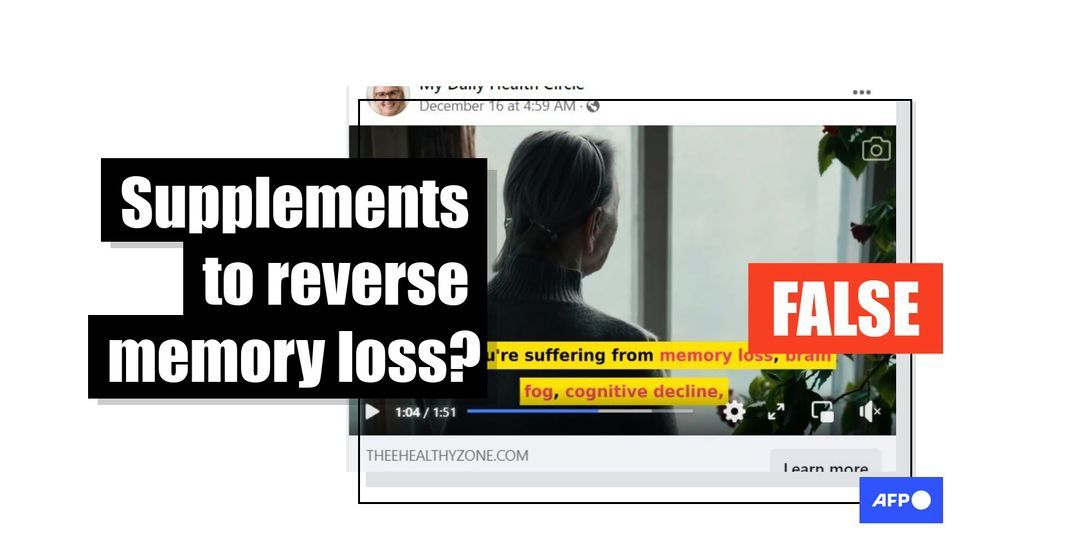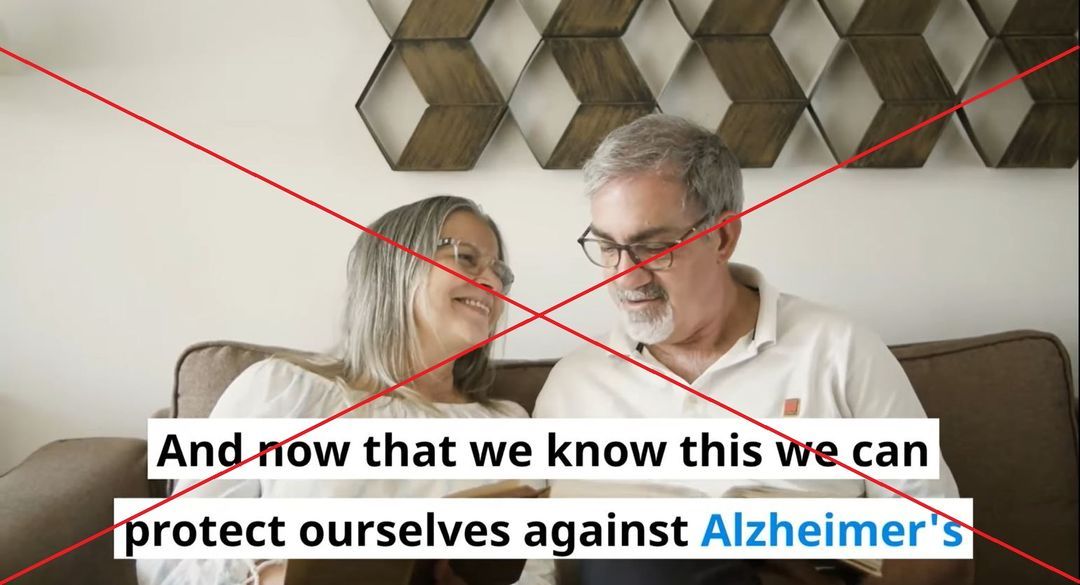
Social media posts claim dietary supplements can reverse memory loss and cognitive decline, citing a discovery of the “true cause” of Alzheimer’s disease. This is false; researchers and health officials say no cure or single cause has been identified for Alzheimer’s, and that supplements alleging otherwise are unregulated and may be harmful.
“Learn how to protect yourself against Alzheimer’s and reverse other memory loss diseases — literally overnight – By doing nothing but this simple method that can be used by anyone!” says a blog post shared November 4, 2022 on Facebook. “This 100% natural solution, which reverses memory loss, has stunned doctors & got the attention of over 170,491 people to transform their lives.”
The webpage links to a video promoting a supplement called Neurotinix, which supposedly contains probiotics and plant ingredients such as peppermint and strawberry. Similar posts on Facebook link to the same product, claiming it will “reverse memory loss” and “clear brain fog.”

While there is considerable research ongoing on Alzheimer’s and other forms of dementia, health experts say there is no known cure or primary cause.
“Scientists do not yet fully understand what causes Alzheimer’s disease. There likely is not a single cause but rather several factors that can affect each person differently,” the US Centers for Disease Control and Prevention (CDC) says on its website.
The agency adds: “Medical management can improve quality of life for individuals living with Alzheimer’s disease and for their caregivers. There is currently no known cure for Alzheimer’s disease.”
In 2021, the US Food and Drug Administration (FDA) approved the use of aducanumab, sold under the trade name Aduhelm, to treat Alzheimer’s, despite controversy over the process. The National Institute on Aging says on its website that the drug “helps to reduce amyloid deposits in the brain and may help slow the progression of Alzheimer’s although it has not yet been shown to affect clinical outcomes such as progression of cognitive decline or dementia.”
Other alternative therapies have been studied and shown to offer little or no clinical benefit, according to the UK-based Alzheimer’s Society.
‘False hope’
The US-based Alzheimer’s Association, a nonprofit group that follows and funds research, says no single product is known to cure the disease — and that many supplements are being marketed with “misleading” claims.
The FDA warns consumers about supposed cures and treatments sold as dietary supplements.
“These purported miracle cures are sold primarily on the Internet. They are often, though not always, falsely labeled as dietary supplements,” the agency says on its website. “Regardless of their form, these products fly in the face of true science. What these companies are selling is the false hope that there is an effective treatment or cure.”
The FDA adds: “At best, the products offered by these scam artists will have no effect on the patient; at worst they may pose a danger to a patient who takes them. Not only will they not do what they claim, the ingredients in these products may interact with, and potentially interfere with, essential medications.”
Rebecca Edelmayer, head of scientific engagement at the Alzheimer’s Association, told AFP that while there is considerable research on neurodegenerative diseases, there is no approved treatment for reversing cognitive decline.
FDA-approved medicines “slow cognitive declines but they are not a cure,” she said, adding that some elements in dietary supplements “could be turned into a treatment but none of this has been validated.”
New pharmaceuticals “have to go through a process of preclinical research and then go into clinical trials before you have enough data to allow regulatory agencies to look at the safety and effectiveness of that approach,” Edelmayer said. Supplements sold online do not go through that process.
“They don’t have the rigorous clinical research that you would need,” Edelmayer said.
AFP has debunked other unproven medical cures here and here.


